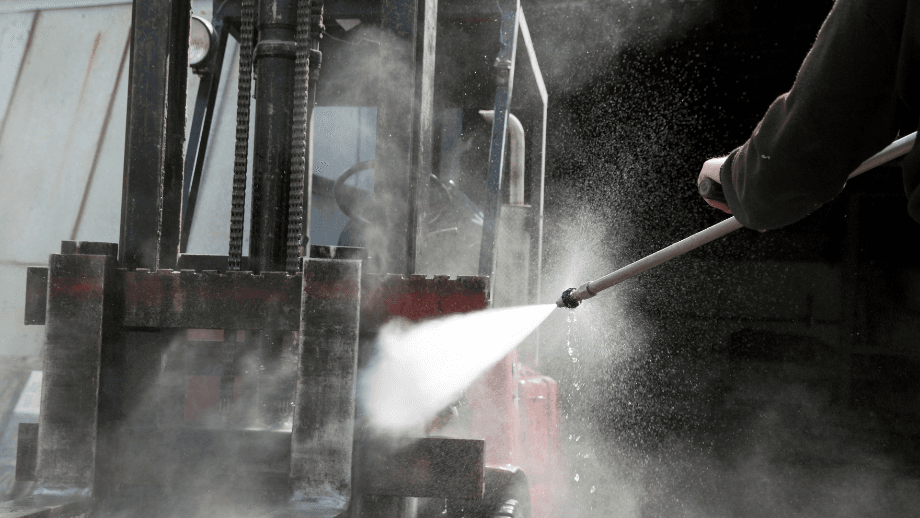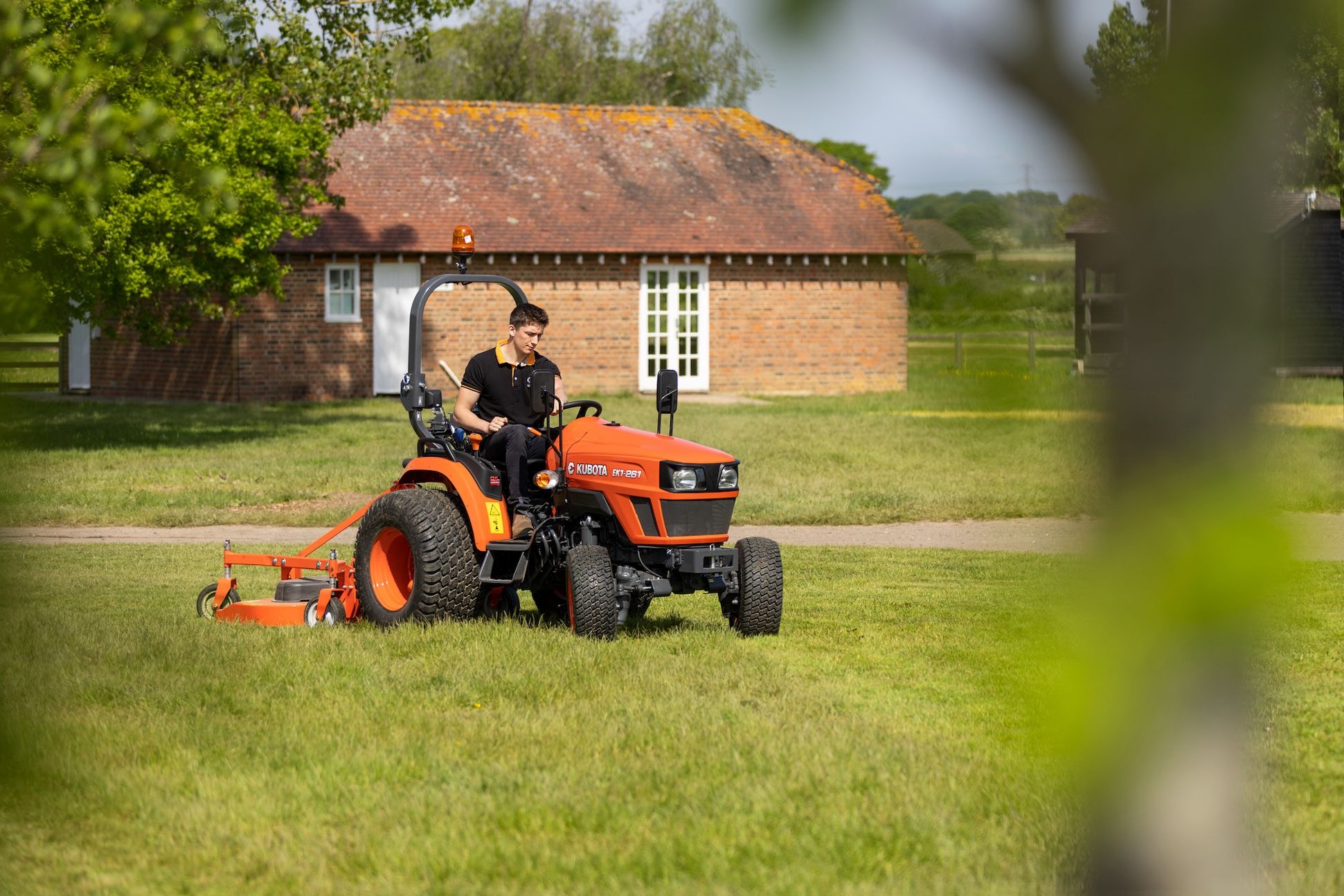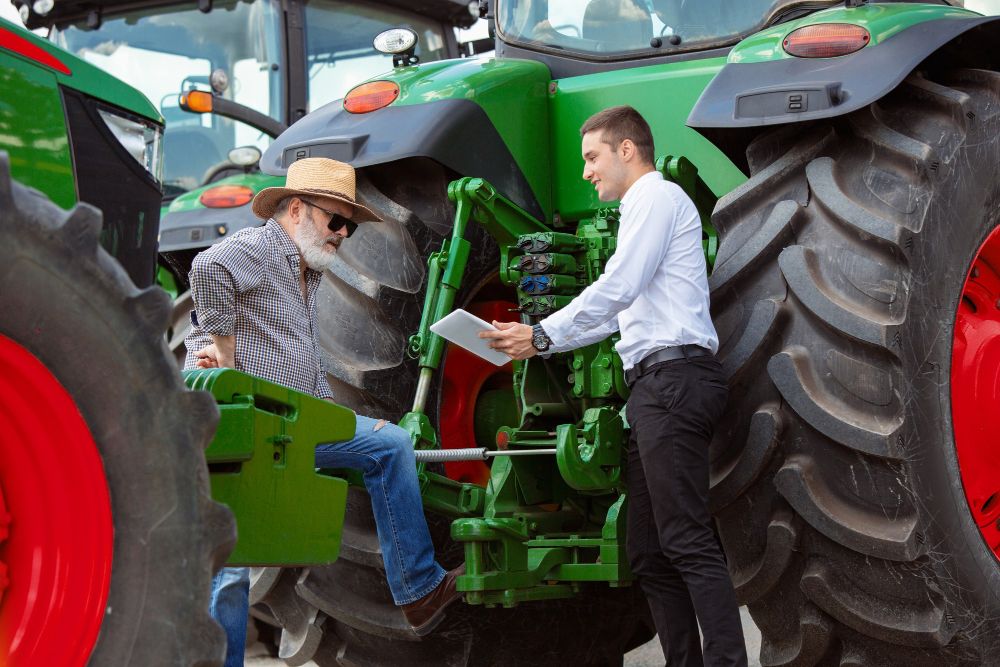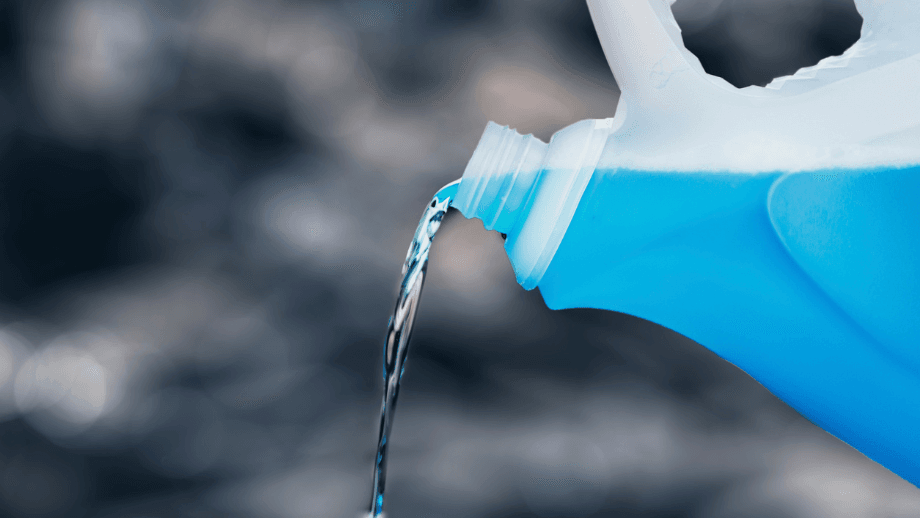
8 tips for winterizing agricultural machinery
Even after the season is over, tractors and co. need care. We explain how you should proceed when winterizing.
When winter comes, combine harvesters, balers and the like are often left unused in the machine hall. But anyone who thinks that you can send your agricultural machinery straight from the field into hibernation is unfortunately wrong: If you want to enjoy your machines for a long time, you should invest some time in their care and winterize them. That way, your loader wagon, seed drill and combine harvester will be able to perform at full capacity again next year.
Tip 1: Clean agricultural machinery
Dirty machines in the hall not only look untidy, they can also become a real problem. True to the motto “dirt is poison for the paint”, annoying rust spots can appear in spring under the dirt from the previous season. The following therefore applies: machines should always be cleaned for winter storage.
Whether air or water is used for cleaning always depends on the machine. Sensitive machines, e.g. combine harvesters, are best cleaned with a compressor. More robust agricultural machinery, such as loader wagons, tractors or plows, can also be cleaned with an external shower. However, it is important to let the machine run again after cleaning so that it can dry out properly. Sensitive parts such as the engine and electronics, on the other hand, should only be cleaned with air pressure.
Tip 2: Oiling and waxing
To keep chains and ball bearings moving smoothly, they should be maintained once again after cleaning the machine. You can grease the moving parts with a commercially available multifunctional oil.
After cleaning, we should also pay special attention to the painted parts of our agricultural machinery: the paint is protected with suitable waxes or wax oils. Some old farmers' wisdom still relies on diesel or waste oil as a protective film for agricultural machinery. However, this is strongly discouraged as it endangers the environment.
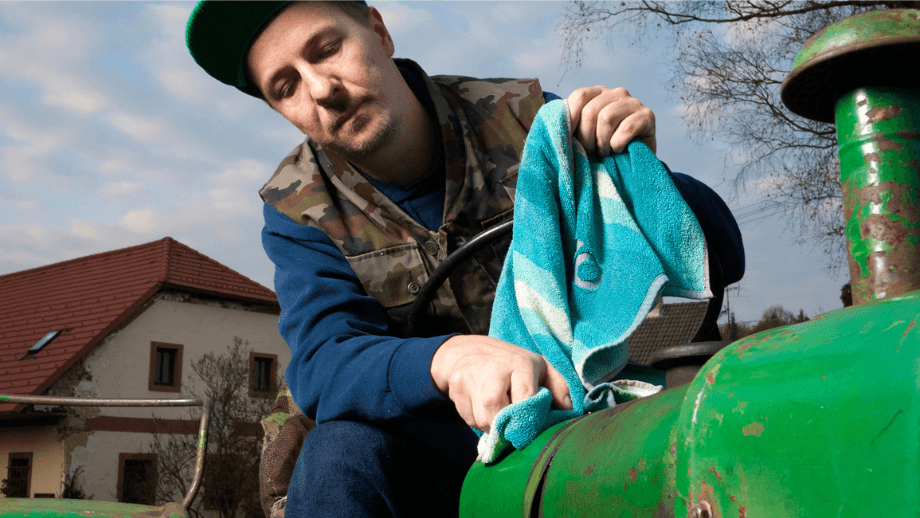
Tip 3: Protect your tires
If agricultural machinery stands still for too long, there is a risk that the tires will suffer and develop flat spots. There are various approaches to avoid this problem. The best way is to jack up the vehicles to relieve the load on the tires. Many mounted machines have a stand for this purpose. In winter, it is also better to park mowers on squared timber rather than directly on the concrete floor.
For larger machines that cannot be easily jacked up, the tire pressure should be checked again before winterizing. For tractors, the optimum tire pressure for winterizing is 1.6 to 2.0 bar, harvesters may have 2.5 to 3 bar on the tires.
Tip 4: Frost protection - but do it right!
The sensitive electronics and engine are particularly susceptible to malfunctions in winter. To prevent damage, it is therefore particularly important to use a suitable antifreeze. If the antifreeze has been topped up, it is important to let the machine run again. This is the only way to distribute the antifreeze in all cooling channels and in the engine block.
Draining the coolant in winter, on the other hand, is a bad idea: this can cause rust to build up in the radiator, which in the worst case can lead to damage to the radiator and engine. Antifreeze, on the other hand, also protects the radiator from corrosion, which is why it makes double sense to fill the machines with sufficient antifreeze. Field sprayers also benefit from a dose of antifreeze: if it is allowed to run through to the nozzles, it keeps the sprayer frost-free and protects against corrosion.
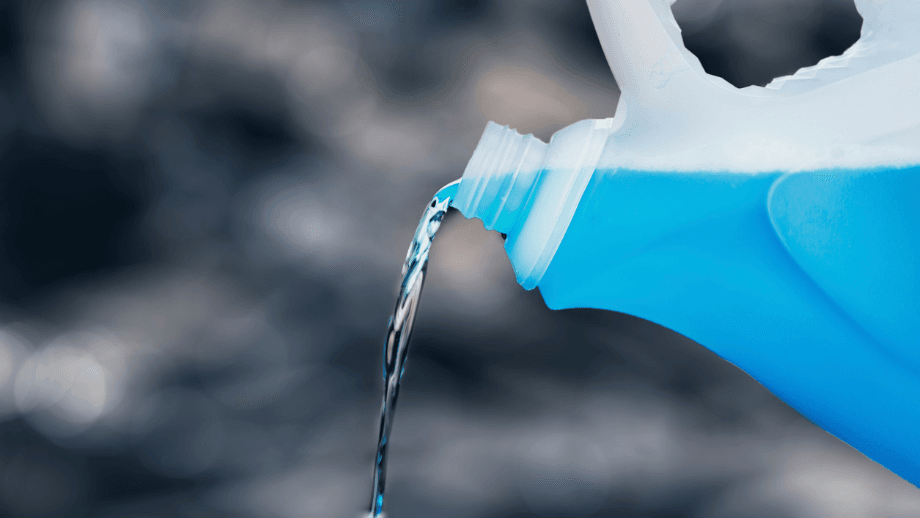
Tip 5: Avoid tension
If the V-belts and large springs of combine harvesters, mulchers and similar machines are permanently under high tension, this can lead to premature wear. These components should therefore be loosened during winter storage. The battery should also be disconnected: Otherwise it can discharge all too quickly during longer periods of downtime.
Tip 6: Check your diesel
A full tank is not only important so that you can get straight to work next spring, but also minimizes the risk of damage from corrosion and rust. For this reason, agricultural machinery should be filled up once again before winterizing. Ideally, this should be done with winter diesel, as this does not flocculate and clog lines and filters even at sub-zero temperatures. Important: After refueling, let the machine run again briefly - this ensures that the fuel reaches the filters and pumps.
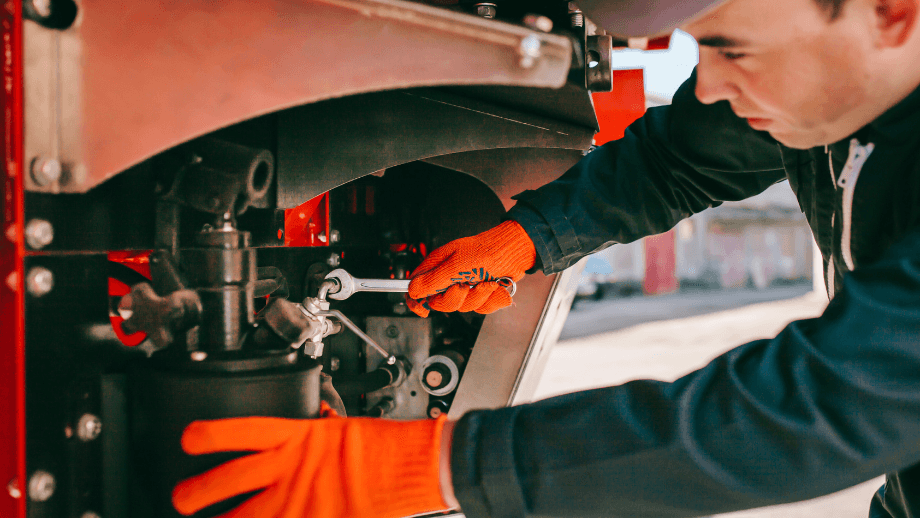
Tip 7: Time for repairs
The machines have to run during the growing season, because time is money. As a result, minor defects are often only provisionally repaired or neglected altogether. In winter, on the other hand, most agricultural machinery is not in use. A perfect opportunity to take care of the problems that have been neglected in recent months.
Creating a list of defects and having them inspected and repaired at the responsible agricultural machinery workshop are tasks that should be carried out in winter. It is also worth paying attention to details: On freshly washed machines, even minor scratches and cracks in the paintwork are easy to spot. If you have these repaired in winter, you will save yourself trouble with rust spots and corrosion in the future.
Tip 8: Well-groomed for the winter service
Not all machines stay indoors all winter - tractors in particular are often used for winter service when it snows. But this can leave its mark: The aggressive de-icing salt can all too quickly lead to corrosion and rust on unprotected vehicles. To prevent this, good care is necessary: Before the first winter service, the tractor should be thoroughly cleaned and then a good corrosion protection, e.g. wax, should be applied. The machine should also be thoroughly rinsed after each use - this removes stubborn road salt from the machine.
